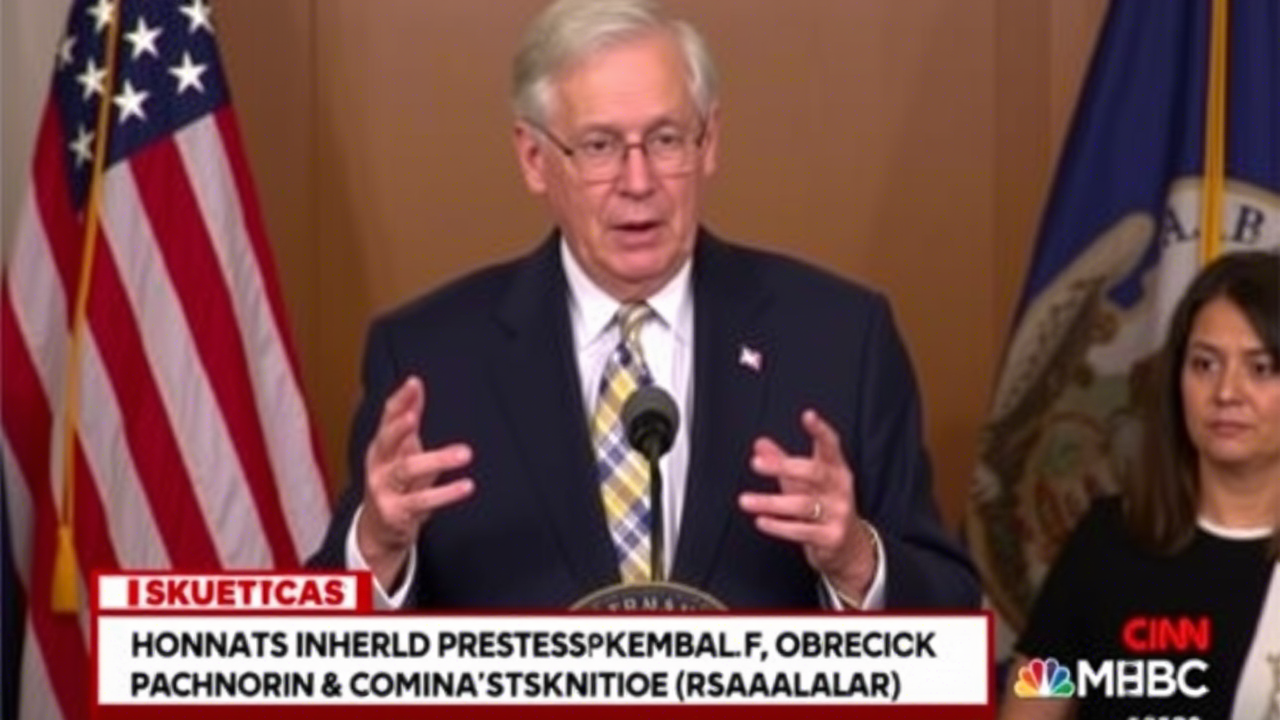Senate Minority Leader Mitch McConnell (R-Ky.) has once again found himself at the centre of Washington’s political storm, this time over former President Donald Trump’s latest slate of controversial nominees and his renewed push for aggressive tariff policies. In a rare public rebuke, McConnell criticized Trump’s choices, particularly the nominations of Robert F. Kennedy Jr. (RFK Jr.) and Tulsi Gabbard, while also voicing concerns about the economic impact of Trump’s protectionist trade agenda.
As the 2025 political landscape heats up, McConnell’s comments underscore growing divisions within the Republican Party—and raise questions about how these rifts could shape policy decisions in the months ahead. Let’s dive into what happened, why it matters, and what it means for the GOP’s future.
McConnell’s Criticism of Trump’s Nominees
RFK Jr.: A Polarizing Choice
One of the most eyebrow-raising moves by Trump was his nomination of Robert F. Kennedy Jr., a vocal anti-vaccine advocate, to lead a newly formed health advisory panel. While RFK Jr. has garnered a loyal following among specific population segments, his views on vaccines and public health have drawn widespread criticism from medical experts and policymakers alike.
McConnell didn’t mince words when addressing the nomination. “Public health is not an area where we can afford to gamble,” he said during a press conference. “The American people deserve leaders who rely on science, not conspiracy theories.”
Health organizations like the American Medical Association (AMA) have echoed McConnell’s concerns, warning that placing someone with RFK Jr.’s track record in such a critical role could undermine trust in public health institutions.
Tulsi Gabbard: Bridging Divides or Deepening Them?
Tulsi Gabbard, the former Democratic congresswoman turned Trump ally, was nominated as a special envoy for Middle East relations. While some see her appointment as an attempt to bridge partisan divides, others view it as another example of Trump’s unconventional approach to governance.
McConnell expressed scepticism about Gabbard’s qualifications, noting her lack of extensive diplomatic experience. “The Middle East is one of the most complex regions in the world,” he remarked. “We need seasoned diplomats, not political experiments.”
Gabbard’s supporters argue that her military background and willingness to engage with controversial figures make her uniquely suited for the role. However, critics worry that her past statements on foreign policy could alienate key allies.
McConnell’s Stance on Tariffs: A Clash Over Economic Policy
Tariffs as a Political Tool
Tariffs have long been a contentious issue within the Republican Party, with Trump championing them as a way to protect American industries and punish foreign competitors. His recent proposal to impose sweeping tariffs on Chinese imports has reignited debates about their effectiveness and potential consequences.
McConnell, a staunch advocate of free trade, pushed back against Trump’s plans, warning that they could harm U.S. businesses and consumers. “Tariffs are essentially taxes on the American people,” he stated. “While protecting domestic industries is important, we must weigh the broader economic impact.”
Economists share McConnell’s concerns. A Peterson Institute for International Economics report found that Trump’s previous tariff policies led to higher prices for consumers and supply chain disruptions. Dr. Laura Thompson, an economics professor at Georgetown University, explained, “Tariffs may provide short-term benefits to certain sectors, but they often come at a significant cost to the overall economy.”
A Growing Rift Within the GOP
McConnell’s opposition to Trump’s tariff proposals highlights a more profound ideological divide within the Republican Party. Traditional conservatives like McConnell prioritize limited government and free markets, while Trump-aligned populists favour more interventionist policies to boosting blue-collar jobs.
This tension could complicate efforts to craft a unified Republican platform heading into the 2026 midterm elections. As strategist Alex Martinez noted, “The party is struggling to reconcile its pro-business roots with Trump’s populist appeal. That disconnect will only get worse unless leaders find common ground.”
What This Means for the Future of the GOP
Can the Party Unite Behind a Single Vision?
McConnell’s criticisms of Trump’s nominees and policies reflect a broader struggle within the GOP to define its identity in a post-Trump era. On one side are establishment Republicans who emphasize fiscal responsibility and global leadership; on the other are Trump loyalists who prioritize nationalism and cultural issues.
For now, McConnell appears determined to position himself as a voice of reason within the party. However, his ability to influence its direction remains uncertain, especially given Trump’s enduring popularity among grassroots supporters.
Some analysts believe McConnell’s stance could inspire moderate Republicans to reclaim control of the party narrative. Others predict that his resistance will further marginalize him within GOP circles. Either way, the outcome of this power struggle will have profound implications for American politics moving forward.
Final Thoughts: Navigating a Divided Landscape
Mitch McConnell’s pushback against Trump’s nominees and tariff policies underscores the challenges facing the Republican Party as it seeks to balance tradition with transformation. Whether you agree with McConnell or Trump, one thing is clear: the GOP’s internal conflicts are far from resolved and will likely dominate headlines in the coming months.
As voters, staying informed and holding our leaders accountable is crucial. Pay attention to how these debates unfold, and don’t hesitate to voice your opinions. After all,today’s decisionsy will shape the country’s trajectory for years.







